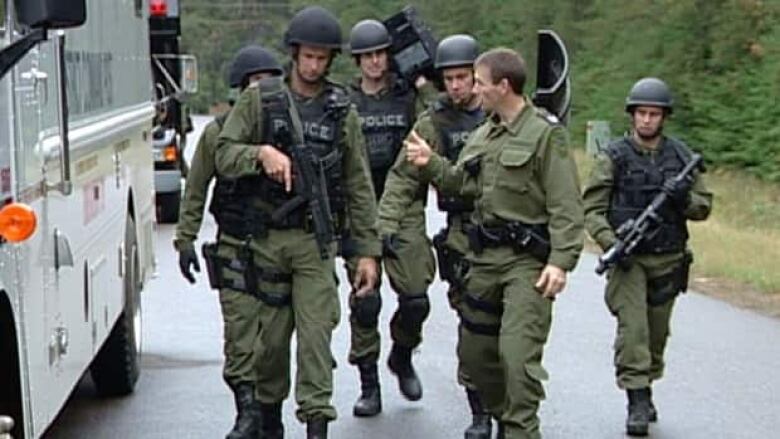Are police equipped to deal with mental health crisis situations?
Documentary filmmaker says cuts in health system have altered police role

Toronto is still trying to make sense of the death of Sammy Yatim, the 18-year-old who was shot and killed by police on a streetcar two weeks ago.
The incident is a distressingly familiar one for Laura Sky, the Canadian documentary filmmaker behind Crisis Call, which explores the delicate relationship police have with people in crisis.
Listen to The Sunday Edition
You can hear Francine Pelletiers conversation with Laura Sky on The Sunday Edition on CBC Radio One this Sunday, Aug. 11, just after the 9 a.m. news.
On July 29, while on a crowded Toronto streetcar, Sammy Yatim pulled out a knife. The streetcar stopped, and all the passengers fled. Yatim was alone on the vehicle when police shouted at him to drop the knife.
Seconds later, one officer who has since been suspended with pay pending an investigation fired nine shots at Yatim. The young man was then Tasered as he lay on the floor of the streetcar.
- Ombudsman to probe police guidelines after Yatim shooting
- Toronto streetcar shooting: After Sammy Yatim was shot
Public outrage over the incident has prompted several demonstrations and raised questions about excessive force. This past week, Ontarios ombudsman, Andre Marin, announced that his office would examine guidelines for police on how to de-escalate the kinds of situation that led to Yatims death.
During a conversation with Sunday Edition guest host Francine Pelletier, Sky described her reaction to Yatims death.
"I just felt immeasurable grief and sorrow and anger and despair and a great need to join with other people both in the police force, in the community, who really want to make this different," said Sky, a two-time winner of the Canadian Mental Health Association Media Award.
Beyond the issue of police conduct, Sky said Yatims death raises bigger questions about whether police are being inappropriately called upon to intervene when someone reaches a state of crisis.
She said that in many cases, police are being thrust into the de facto role of front-line mental health workers at a time when the health care system is inadequate to support people with mental health issues before they lead to dangerous situations.
"Frankly, even the best of the police [officers] I met, that's not what they signed up for, nor is it a skill set that they feel is their calling. But the wider question is, Why have they become front-line mental health workers? Why have we put them in this position?"
"As government spending in mental health has decreased, our need for the police has increased. My concern is that this has not been a public conversation. This has not been a debate. We ourselves haven't signed up for this. It's an erosion of one set of policies to be replaced by another and I'm deeply troubled by that."












_(720p).jpg)


 OFFICIAL HD MUSIC VIDEO.jpg)
.jpg)



























































































